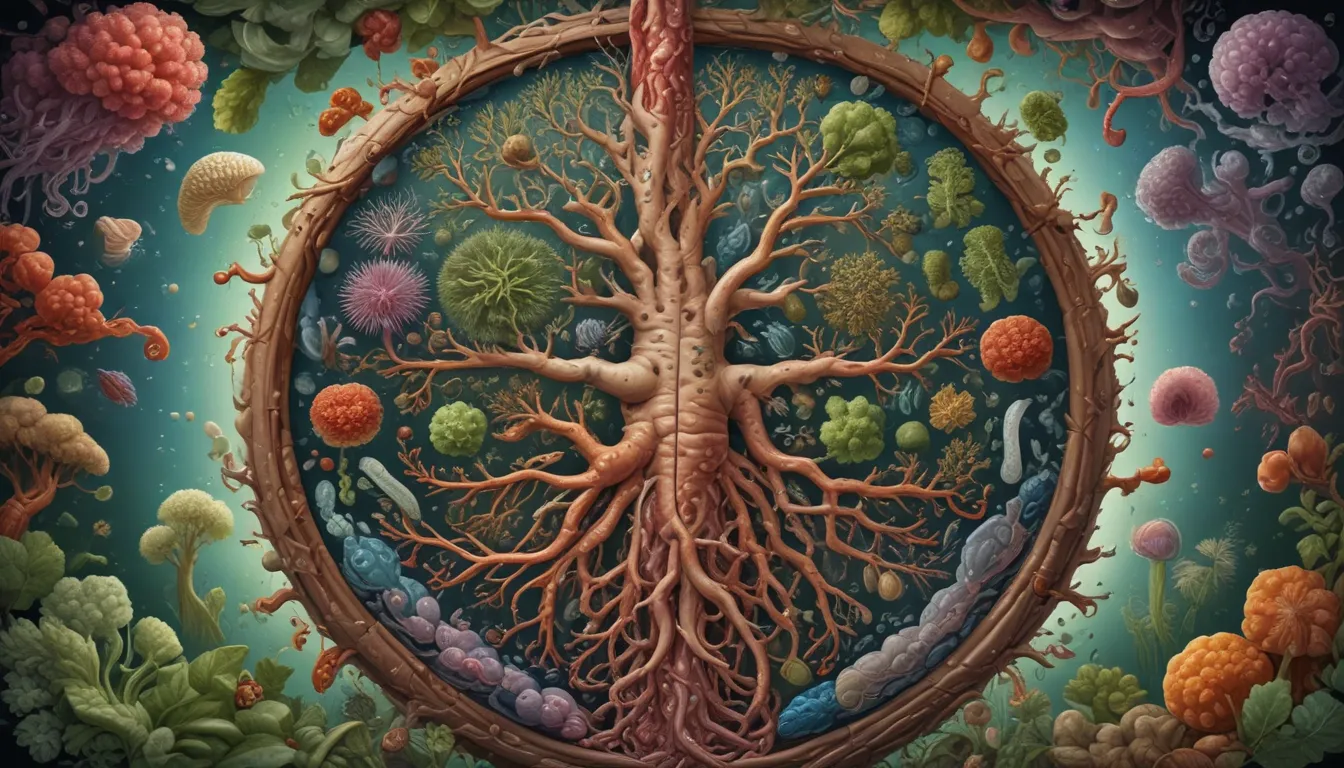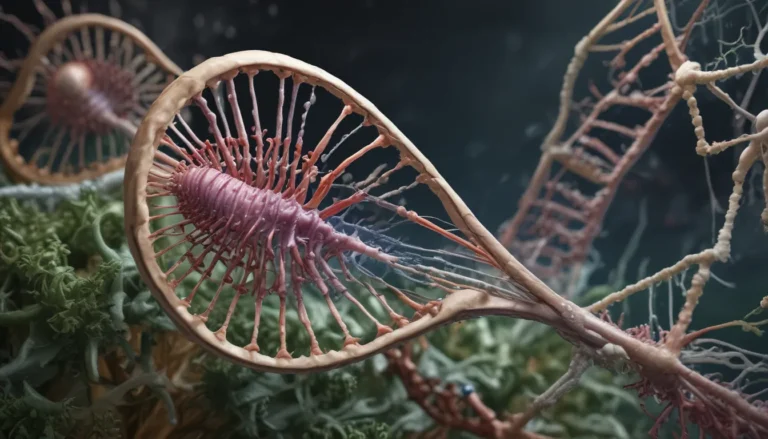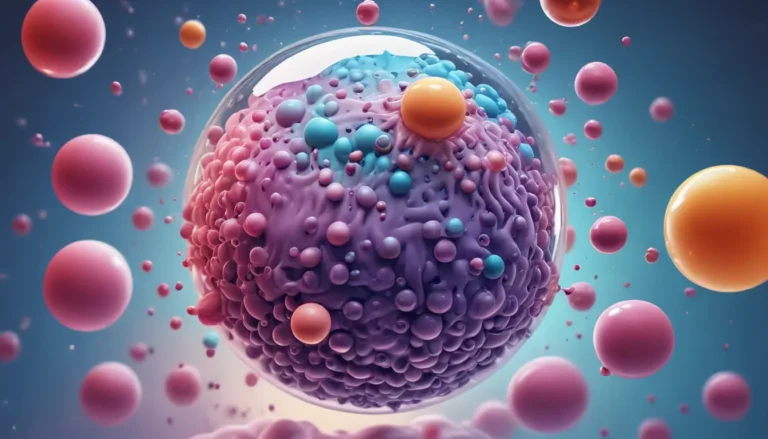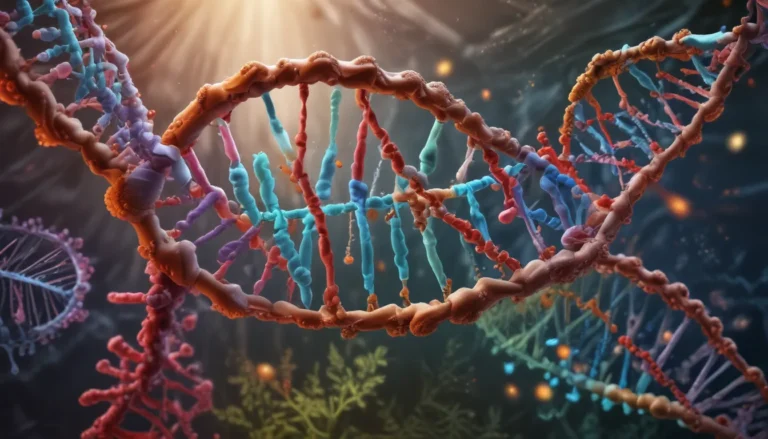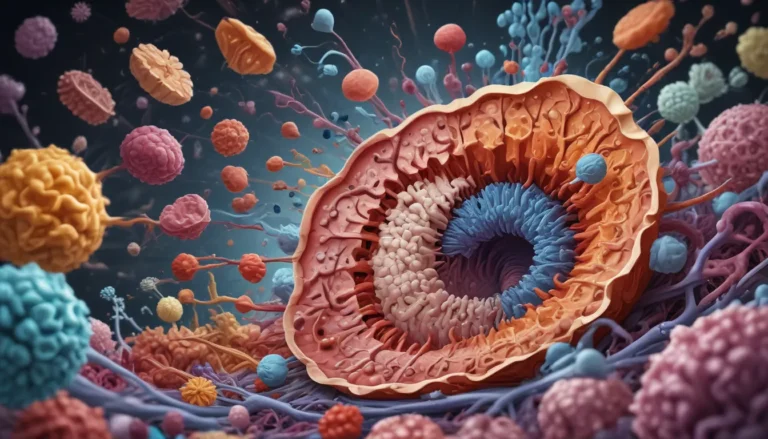A Note About Images: The images used in our articles are for illustration purposes only and may not exactly match the content. They are meant to engage readers, but the text should be relied upon for accurate information.
Microbial metabolism is a mesmerizing realm that unveils the intricate biochemical processes of tiny organisms like bacteria, archaea, and fungi. These microorganisms play pivotal roles in various ecosystems, surviving and thriving in diverse environments. Exploring microbial metabolism not only enhances our understanding of biology but also opens doors to applications in medicine, agriculture, and environmental science.
In this enlightening article, we will delve into 20 captivating facts about microbial metabolism, shedding light on the remarkable capabilities of these microorganisms. From their knack for extracting energy from unconventional sources to their pivotal role in biodegradation and production of valuable compounds, microbial metabolism stands as a rich and complex domain of study that never ceases to astound scientists worldwide.
So, fasten your seatbelts and get ready to be enthralled by the remarkable insights into the captivating world of microbial metabolism!
Key Takeaways:
- Microbial metabolism acts as a linchpin for nutrient cycling, industrial production, and environmental remediation, serving as a vital recycling system that sustains ecological balance and yields valuable products. These microorganisms exhibit astounding metabolic prowess, generating energy, synthesizing vitamins, and degrading pollutants, akin to tiny superheroes with distinctive powers that benefit both the environment and human society.
Unveiling Microbial Metabolism:
Microbial metabolism encompasses a myriad of biochemical processes that occur within microorganisms, such as bacteria and fungi. These organisms boast diverse metabolic pathways that enable them to harvest energy, manufacture essential molecules, and execute vital functions within their habitats.
The Role of Microbial Metabolism in Nutrient Cycling:
Microorganisms play a pivotal role in nutrient cycling by breaking down organic matter and transforming it into usable energy and nutrients. Through processes like decomposition, they release crucial nutrients back into the ecosystem, maintaining a delicate balance of nutrients in the environment.
The Fascination of Anaerobic Metabolism:
While most organisms depend on oxygen for their metabolic activities, certain microorganisms thrive in oxygen-deprived environments, exhibiting anaerobic metabolism. This unique trait allows them to flourish in habitats where oxygen levels are scarce or absent.
Industrial Valorization Through Microbial Metabolism:
Microorganisms serve as valuable assets in the production of a diverse array of industrial products, including enzymes, antibiotics, biofuels, and organic acids. Their metabolic versatility renders them indispensable tools in industrial biotechnology.
Environmental Influences on Microbial Metabolism:
Various environmental factors, such as temperature, pH, nutrient availability, and toxin presence, can modulate the metabolic processes of microorganisms. Understanding these environmental cues is pivotal for optimizing microbial metabolism in diverse applications.
Illuminating Photosynthesis in Microbes:
Contrary to popular belief associating photosynthesis with plants, certain microorganisms like cyanobacteria exhibit the ability to harness light energy and transmute it into chemical energy through photosynthetic pathways.
The Complexity of Molecule Breakdown in Microbial Metabolism:
Microbes utilize a vast array of enzymes to dismantle complex organic molecules, including carbohydrates, proteins, and lipids, into simpler compounds that fuel their energy requirements and growth.
Exploring the Spectrum of Byproducts in Microbial Metabolism:
Some microorganisms produce byproducts during metabolism that can have detrimental effects on other organisms or the environment. Examples include the generation of toxic substances or greenhouse gases.
Thriving in Extreme Environments:
Microorganisms showcase resilience in extreme settings like hot springs, deep-sea hydrothermal vents, and acidic locales, leveraging their unique metabolic adaptations to survive and perform crucial functions in challenging habitats.
Vitality of Microbial Metabolism in the Nitrogen Cycle:
Microbes play a pivotal role in converting nitrogen into various chemical forms, facilitating its availability to plants and other organisms. This process is essential for maintaining the ecological balance in ecosystems.
Combatting Pollution Through Microbial Metabolism:
Certain microorganisms possess the ability to metabolize and degrade a breadth of pollutants, including petroleum hydrocarbons, pesticides, and industrial chemicals. This phenomenon, known as bioremediation, aids in cleansing contaminated environments.
Genetic Influences on Microbial Metabolism:
The genetic makeup of microorganisms exerts a significant impact on their metabolic capabilities. Genetic manipulations or engineering can be employed to enhance desired metabolic traits in microbes for specific applications.
A Taste of Fermentation in Microbial Metabolism:
Fermentation is a metabolic process wherein microorganisms convert organic substances like sugars or carbohydrates into simpler compounds, often yielding byproducts such as ethanol or lactic acid. This process finds extensive applications in crafting alcoholic beverages, bread, and dairy products.
Powering Up Through Respiration:
Certain microorganisms derive energy through respiration processes, utilizing diverse electron donors and acceptors. This energy generation mechanism is vital for their sustenance, growth, and execution of essential cellular functions.
Harvesting Biogas Through Microbial Metabolism:
Under anaerobic conditions, specific microorganisms degrade organic matter to produce biogas, predominantly composed of methane and carbon dioxide. Biogas emerges as a renewable energy source of interest.
Diverse Metabolic Endeavors in Microorganisms:
Microbes exhibit a remarkable metabolic diversity, showcasing the ability to utilize a wide array of substrates and perform various metabolic pathways, enabling them to survive in diverse habitats and adapt to changing environments.
Nurturing with Essential Vitamins:
Certain microorganisms possess the capability to synthesize essential vitamins, like vitamin K and certain B vitamins, which are critical for the growth and development of various organisms, including humans.
Capacitating Electroactive Bacteria:
Selected bacteria, termed electrogenic bacteria, demonstrate the prowess to transfer electrons to solid surfaces, thereby generating electrical currents. This phenomenon, encapsulated as microbial fuel cells, holds promise for energy production and wastewater treatment applications.
Pioneering the Decomposition of Organic Waste:
Microorganisms serve as pioneers in the decomposition and recycling of organic waste materials. Through their metabolic endeavors, they break down complex organic compounds into simpler forms, aiding in the nutrient cycling process.
Embarking on a Voyage of Discovery in Microbial Metabolism:
Despite significant strides in unraveling the intricacies of microbial metabolism, there exists a vast uncharted territory awaiting exploration and revelation. Ongoing research continues to illuminate the labyrinthine metabolic pathways of microorganisms and their potential utilities across a spectrum of domains.
Illuminating Synergies in Microbial Metabolism:
Exploring microbial metabolism unfolds myriad synergies shaping microbial communities and their interactions. Bioremediation harnesses the metabolic dexterity of microbes to remediate pollutants, while fermentation unlocks a treasure trove of valuable products, showcasing the profound impact of microbial metabolism.
Concluding Remarks:
In wrapping up, delving into microbial metabolism unveils the awe-inspiring diversity and capabilities of these microscopic powerhouses, shedding light on their profound impact on ecosystems and human endeavors. By deciphering microbial metabolism, scientists glean insights into fundamental life processes and explore avenues for leveraging these abilities in diverse applications, from environmental restoration to sustainable energy production.
As the realm of microbial metabolism unfolds, it promises a tapestry of intriguing discoveries and groundbreaking insights into the enigmatic world of microorganisms, propelling us towards innovative solutions for global challenges.
FAQs:
-
What is microbial metabolism?
Microbial metabolism entails the chemical processes within microorganisms, encompassing nutrient breakdown, energy production, and the generation of metabolic byproducts. -
How do microorganisms acquire energy?
Microorganisms procure energy through diverse metabolic pathways, including aerobic respiration, anaerobic respiration, and fermentation, involving the degradation of organic molecules to fuel cellular processes. -
Can microbial metabolism pose risks?
While microbial metabolism is pivotal for ecosystem functioning, certain microorganisms can pose risks. Pathogenic bacteria, for instance, can contribute to infectious diseases by utilizing host resources for proliferation. -
How does microbial metabolism aid in bioremediation?
Microbial metabolism plays a crucial role in bioremediation, utilizing microorganisms to detoxify pollutants. Specific microbial species harbor metabolic pathways capable of degrading harmful contaminants, facilitating environmental cleanup. -
Can microbial metabolism drive biofuel production?
Indeed, microbial metabolism can be leveraged for biofuel production. By manipulating microorganisms, researchers optimize their metabolic pathways to yield biofuels like ethanol or biodiesel from renewable sources, offering sustainable alternatives to fossil fuels.
The captivating world of microbial metabolism teems with untold wonders waiting to be unfurled. Each exploration into the realm of microbial interactions uncovers intricate relationships sculpting microbial communities. Through bioremediation, microbes channel their metabolic prowess to cleanse pollutants, while fermentation unveils a treasury of invaluable products. Each facet holds enthralling facts that promise to deepen our comprehension of these microscopic marvels and their profound influence on our planet.
By reimagining and restructuring the given article, a comprehensive guide to the captivating realm of microbial metabolism is crafted. Delving into the intricate world of microorganisms, readers are invited on a journey of discovery and enlightenment, unraveling captivating insights and remarkable revelations hidden within the microscopic domain.
